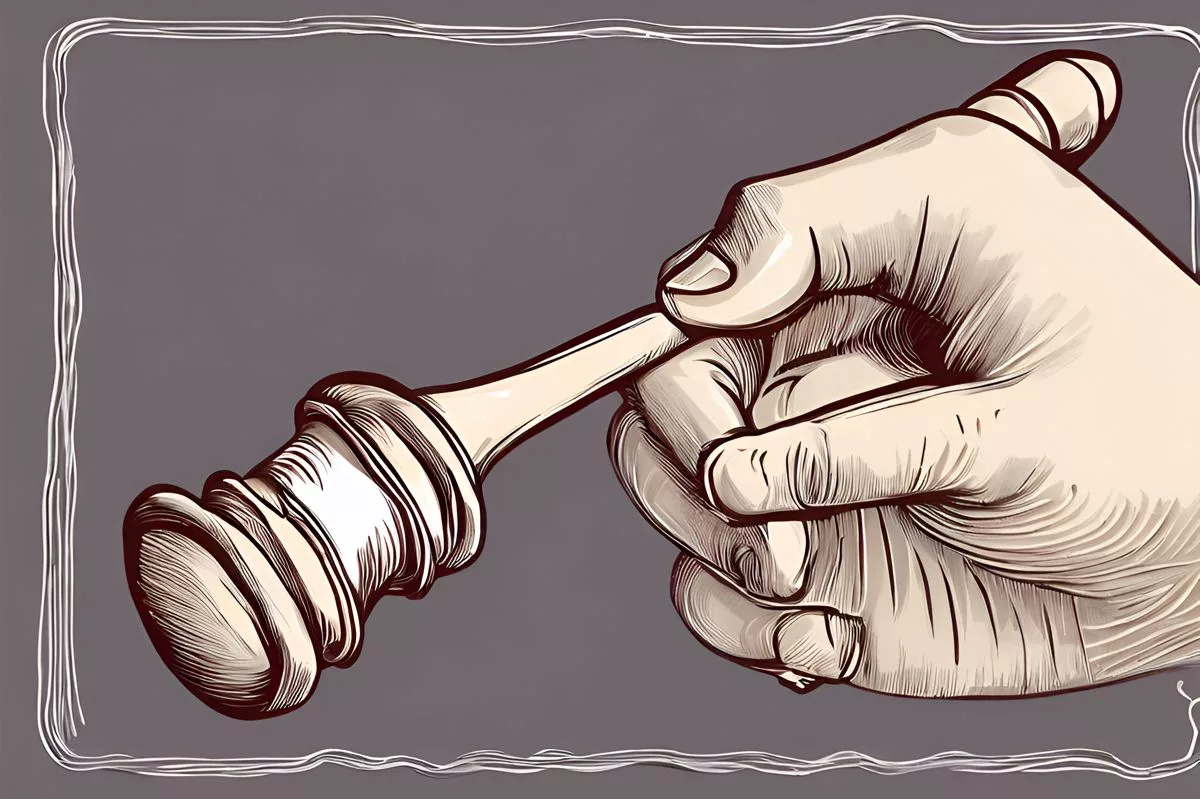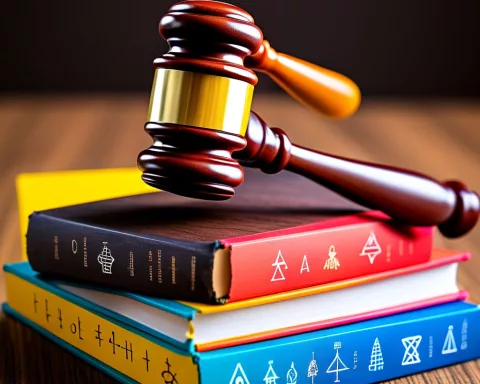The Western Cape High Court upheld the suspension of Ms. Dipuo Peters from her parliamentary duties after she violated the Code of Ethical Conduct during her time as Minister of Transport. Ms. Peters was accused of negligence in her responsibilities, including failing to appoint a Group CEO for the Passenger Rail Agency of South Africa and using PRASA buses for ANC events without ensuring compensation. The court’s decision serves as a warning to public servants that their actions are subject to scrutiny and repercussions if they breach ethical behavior. Parliament’s regulatory prerogatives were respected, and the case highlights the importance of adherence to the principles of accountability and freedom of speech in preserving the integrity of the South African Parliament.
The Western Cape High Court affirmed the temporary removal of Ms. Dipuo Peters from her parliamentary duties, following her violation of the Code of Ethical Conduct during her previous role as Minister of Transport. The court dismissed her plea to block the implementation of her suspension, stressing the significance of non-interference in Parliament’s regulatory authority. This serves as a warning to public servants that their actions are subject to examination and repercussions if found in breach of ethical behavior.
In a recent decree by the Western Cape High Court, the court affirmed the temporary removal of Ms. Dipuo Peters from her parliamentary duties. Peters’ immediate plea to block the implementation of her suspension was rejected, highlighting the court’s respect for the Parliament’s regulatory authority.
The Turn of Events Leading to the Suspension
Ms. Peters, a member of the South African Parliament and ex-Minister of Transport, found herself in turbulent waters in October 2023. Trouble began for her when the Joint Committee on Ethics and Members’ Interests decided upon a complaint filed against her. The committee ruled that she had infringed the Code of Ethical Conduct during her previous role. The complaint was lodged by #UniteBehind’s leader and activist, Mr. Zackie Achmat. He claimed that Ms. Peters had been negligent in her responsibilities, mainly by not appointing a Group CEO for the Passenger Rail Agency of South Africa (PRASA).
Achmat’s objection also pointed out that Ms. Peters had dismissed the Molefe Board, which had discovered an unsettling R14 billion in irregular expenditure. This board had also begun corruption investigations at PRASA. Additionally, she was charged with using PRASA buses for ANC events in 2014 and 2015, without ensuring that the ANC compensated for these expenses.
The Ethical Violations and Their Consequences
After a comprehensive investigation, the ethics committee concluded that Ms. Peters’ inability to appoint a Group CEO violated items 4.1.3 and 4.1.4 of the code. These clauses state that members must always act in line with the public trust conferred upon them. They must fulfill their constitutional duties to Parliament and the general public by putting public interest before their own. Peters’ failure to appoint a Group CEO, in spite of the PRASA Board initiating a recruitment process, led to a financial loss of R1 767 000.
The committee then suggested to the National Assembly that Ms. Peters be banned from participating in all parliamentary debates, sessions, and committee meetings. The committee further recommended that the suspensions for all three violations should be carried out concurrently during a single parliamentary program term.
The Court’s Considerations and Decision
The presiding judge saw no compelling reason for an immediate hearing of the plea, as Ms. Peters was informed of the committee’s findings and the proposed penalties as of 26 October 2023. Her declared plan to challenge the committee’s findings on 28 November further confirmed this awareness.
The court expressed its respect for Parliament’s regulatory prerogatives as a branch of the state and stressed the significance of non-interference in its processes. Granting relief to delay the enforcement of the punishment would essentially revoke a decision made by another branch of the state, particularly in its constitutional oversight duties. Given the urgency of the matter and lack of a legal justification for such interference, the court dismissed this idea.
In light of the court’s decision, Ms. Peters’ suspension began on 30 January, predicted to end on 28 March. The plea was rejected with costs. This instance serves as a severe warning to public servants that they are not exempt from the law and their actions are open to examination and repercussions if found in breach of ethical behavior.
The Parliamentary Culture and Its Implications
The South African Parliament is rooted in a culture of openness, accountability, and freedom of speech, as safeguarded in the Bill of Rights. However, this liberty does not allow for the promotion of war, incitement of violence, or fostering hatred based on race, ethnicity, gender, or religion. Therefore, adherence to these principles is crucial in preserving the integrity and credibility of this respected institution.
This case, although regrettable, emphasizes the alert and proactive role of South Africa’s parliamentary ethics committee in holding its members accountable. It acts as a symbol of effective self-regulation, strengthening public trust in the institution’s pledge to maintain the highest standards of ethical behavior.
1. What led to Ms. Dipuo Peters’ suspension?
Ms. Peters was suspended for violating the Code of Ethical Conduct during her previous role as Minister of Transport. She was accused of being negligent in her responsibilities, including failing to appoint a Group CEO for the Passenger Rail Agency of South Africa and using PRASA buses for ANC events without ensuring compensation.
2. What were the consequences of Ms. Peters’ ethical violations?
Ms. Peters was banned from participating in all parliamentary debates, sessions, and committee meetings. Her suspension began on 30 January and is predicted to end on 28 March. The suspensions for all three violations will be carried out concurrently during a single parliamentary program term.
3. What was Ms. Peters’ plea to block the implementation of her suspension, and was it successful?
Ms. Peters pleaded to block the implementation of her suspension, but the Western Cape High Court rejected her plea and affirmed her temporary removal from her parliamentary duties. The plea was rejected with costs.
4. What role did the parliamentary ethics committee play in this case?
The parliamentary ethics committee investigated Ms. Peters’ ethical violations and suggested to the National Assembly that she be banned from participating in parliamentary activities. The committee acted as a symbol of effective self-regulation, strengthening public trust in the institution’s pledge to maintain the highest standards of ethical behavior.
5. What is the significance of the court’s decision in this case?
The court’s decision serves as a warning to public servants that their actions are subject to examination and repercussions if found in breach of ethical behavior. It highlights the importance of adherence to the principles of accountability and freedom of speech in preserving the integrity of the South African Parliament.
6. What are the principles that the South African Parliament upholds, and why are they crucial?
The South African Parliament upholds the principles of openness, accountability, and freedom of speech, as safeguarded in the Bill of Rights. These principles are crucial in preserving the integrity and credibility of the institution. However, they do not allow for the promotion of war, incitement of violence, or fostering hatred based on race, ethnicity, gender, or religion.












